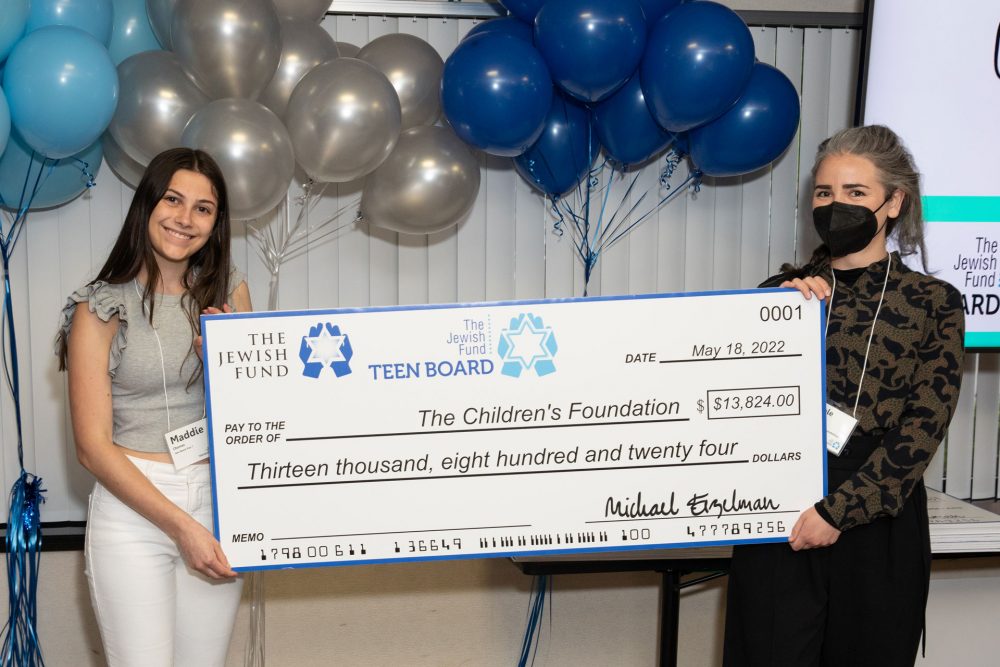Opening the Conversation on Youth Mental Health
By Vivian Henoch, Editor myJewishDetroit
July 1, 2018
“We Need To Talk.” That’s the message of Federation’s youth mental health initiative launched in May. The website, the cornerstone of the initiative, is available at www.jewishdetroit.org/weneedtotalk and provides resources for both teens and parents, articles, crisis information and videos featuring teens telling their stories and mental health professionals providing advice.
“We need to have a community-wide conversation about youth mental illness, and that’s what the ‘We Need to Talk’ campaign is aimed at starting,” said Todd Krieger, Federation’s senior director of planning and agency relations. “Perhaps the ultimate irony is that those suffering from mental illness feel as though they are all alone. The reality is that nearly everyone is working through a mental health challenge. By bringing the discussion about mental illness out of the dark and into the light, we can destigmatize the topic, make it normal to discuss and help more people become comfortable asking for help.”
In addition to the website, Federation and its partner agencies and consultants throughout the community are training 850 Jewish professionals on Safe Talk suicide prevention; helping to develop a curriculum on teen mental health for b’nai mitzvah students; and have hired Julie Fisher, an educational consultant, to develop customized mental health programming for Jewish day schools. Federation also has hired Amy Wayne, MPH, to work on the initiative as Federation’s youth mental health coordinator.
Donors who have contributed to the youth mental health initiative, to date, include The Jewish Fund, the D. Dan and Betty Kahn Foundation, Jewish Federation, the Deutsch Fund, the Hermelin-Davidson Center for Congregational Excellence, Norm and Susie Pappas, and Howard and Jean Dubin.
In January, the JN began publishing a series of stories on teen mental health that will continue throughout the year.
The Need for a Community Approach
The catalyst for Federation’s teen mental health efforts was the community study done in 2016 by the Jewish Fund, which revealed that teenagers in the Jewish community were struggling with mental health challenges such as sadness, depression and anxiety at very high levels.
“We read the survey, and it was like our youth were screaming for help,” Federation CEO Scott Kaufman said. “Whether it was anxiety around academics or stress or social media issues, it was a problem beyond what anyone may have guessed.”
Kaufman said he is grateful the community has come together to address these problems. “This is a collective effort and it’s aimed at bringing all of us together to maximize impact, efficiencies and effectiveness. Almost everything that we’re doing has been collaborative and user-centric.”
According to Eric Adelman, executive director of Kadima, a mental health service provider, “Most teens’ mental health challenges are mild to moderate and can be helped with education and awareness and by helping them build resiliency to work through anxiety and depression. Unequivocally, however, some teens are going to have an acute crisis or a chronic crisis that, God forbid, could lead to suicide, if there is no intervention.”
The Jewish community is sensitive to the topic of suicide and knows something must be done, according to Perry Ohren, CEO of Jewish Family Service. “For Federation to come in and convene all of us to work collectively and use its access to resources to solve the big, broad issues and prevent the real tragedy or crisis from ever occurring has been very important.”
Speaking to Everyone
On the “We Need To Talk” website, many of the young people sharing their stories on video come from UMatter, a Friendship Circle program led by Rabbi Yarden Blumstein that focuses on empowering teens to shatter the stigmas surrounding mental health.
The “We Need to Talk” site is launching with seven videos and more will be added regularly, Krieger said. The pilot video for “We Need To Talk” featuring teens from UMatter has garnered more than 50,000 views on YouTube.
“We’re trying to provide information tailored toward young people and parents and give them the resources they need in a format they’re comfortable with,” Krieger said.
“For example, some people might want to go to larger community programs while others might prefer to meet at someone’s home for a short parlor meeting to hear an expert talk about parenting issues. The website is only one piece of our effort to get information out to the community.”
These parlor meetings, lasting up to 90 minutes or so, are being calling “FRED” (Focus on Resources, Education and Dialogue) Talks. Community members can request a FRED Talk in their home to which they would invite about 10 of their friends. Federation brings in an expert to address a parenting or mental health issue and provides critical information for attendees. “Whether it’s managing your child’s stress, setting appropriate expectations or learning to identify a child who may need help, we’ll bring the expert and the food and provide great information in a short period of time,” Krieger said.
The first FRED Talk about 21st-century parenting with Julie Fisher was held l in April in Huntington Woods, Krieger said. A second FRED Talk featuring Erica Saum from Jewish Family Service, who spoke on suicide prevention and awareness, was held in May in West Bloomfield.
“Mental health issues don’t differentiate whether you’re tall or short or Orthodox or Reform. People from all spectrums of the community are struggling with some sort of mental health issue,” Kaufman said. “People going through this feel completely alone, but the reality is that everyone else is struggling with it, too. Whether you know it or not, you’re really part of a larger group and there should be comfort in that.”
Visit We Need To Talk at www.jewishdetroit.org/weneedtotalk. To request a FRED Talk, contact Amy Wayne, MPH, at awayne@jfmd.org or (248) 203-1483.




